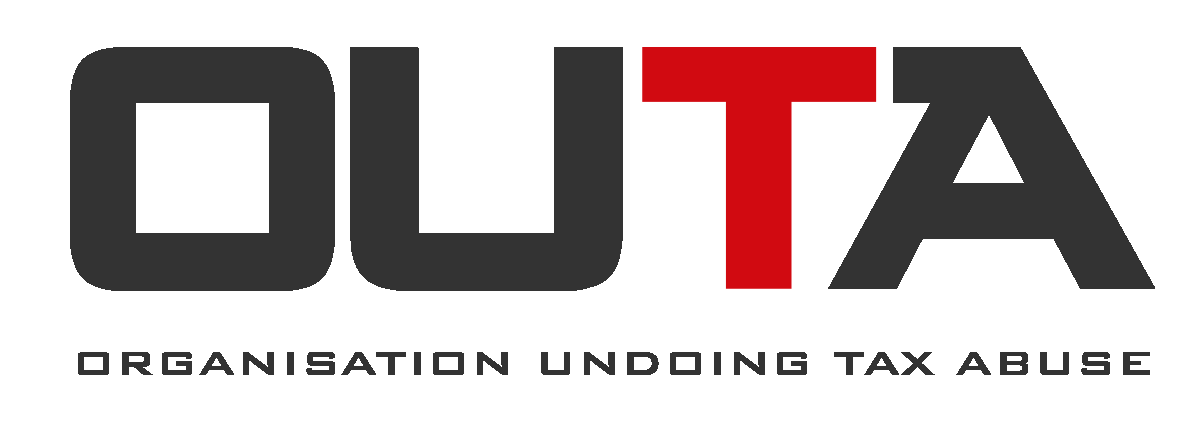Overtaxing us all won’t bring in more revenue
The trust deficit perpetuates the Budget deficit, the Organisation Undoing Tax Abuse (OUTA) told Parliament.
“We have reached the limits of reasonable tax revenue collection,” said OUTA’s Parliamentary Engagement Manager, Matt Johnston.
The cost of living, is going up exponentially: fuel, electricity, and VAT. Our national debt and the price of paying off that debt are also going up as, every year, Government spends more than it brings in. This is bad business.
Government can’t expect to squeeze more revenue out of South Africans by hiking taxes to compensate for corruption, maladministration and financial mismanagement. Even the unemployed were recently hit with tax hikes, i.e. the VAT increase. “The current economic downturn was largely caused by poor governance,” said Johnston. Funds earmarked for uplifting disadvantaged communities and creating an inclusive economy have been wasted on failed organs of state.
Taxpayers no longer trust government and it is government’s responsibility to restore the public’s confidence in it, Johnston told the Joint Committees on Finance on Wednesday 31 October. Johnston was presenting OUTA’s submission on the Medium-Term Budget Policy Statement 2018 (MTBPS).
There’s a tipping point when increasing taxes results in less revenue rather than more, he said.
“The optimal level of taxation for South Africa should lie somewhere between 20% and 24% of economic output. This is at least 5% (and up to 9%) below the 28.9% level of the 2017/18 fiscal year,” said Johnston. Between 2014 and 2017, a 1% increase in taxation produced only 0.05% extra real tax revenue.
Instead, Government should focus on reducing recurring current expenditure by R270bn to R485bn a year without exacerbating poor service delivery. This means reversing the trend of channelling money into loss-making entities at the expense of service delivery.
It means aiming to cut the compensation for the public service from the current 30% of all spending to about 25%. The increase in the size of the wage bill is an example of superfluous spending without getting much value for money.
“Raise the bar, improve public services,” Johnston told the committees in response to question on how trust could be restored.
“If drastic measures are not taken, Government runs the risk of losing control over its finances in the next decade.”
He urged Government to cut out unnecessary activities and reduce the spending needed to achieve essential outputs.
He disagreed with government’s plan to shift needed capital for rail infrastructure to cover interest-bearing debt from the Gauteng Freeway Improvement Project. This was originally supposed to be paid for by the failed e-toll scheme, but road users understandably will not pay. The money is available, for example, in our excessive fuel levy, but it is wasted and mismanaged, he said.
OUTA’s recommendations:
- Remove deeply insolvent state-owned entities (SOEs) from government ownership instead of bailing them out;
- Phase out entities that don’t benefit the public or generate profits;
- Remove unnecessary and redundant departments;
- Strengthen governance and accountability; and
- Eliminate corrupt networks and wasteful expenditure.
The submission
OUTA’s submission on the MTBPS 2018 included research by independent economic consultancy Econometrix.
The OUTA MTBPS presentation is here.
A Budgetary Strategy for South Africa is here.
Find the conclusion of the following two reports here - Theory of Fiscal Policy
This report argues that 1) debt should be incurred only for capital expenditure not operational expenditure, 2) current taxpayers should not subsidise or be subsidised by future taxpayers, and 3) the focus should be on preserving South Africa’s access to credit in the global economy.
It recommends cutting costs in two ways: eliminating unnecessary activities (allocative efficiency) and reducing the cost of providing essential services (productive efficiency).
Thus, cutting costs would include dumping failed and unnecessary SOEs (e.g. SAA), consolidating other SOEs and closing departments which provide insufficient benefits. It would also include consequence management, setting minimum standards of competence, and cutting wasteful and irregular expenditure. Poor financial performance must be met with serious consequences.
Taxation ceiling for South Africa and the implications of the Laffer curve
This considers the need for a taxation ceiling and the application of the so-called Laffer curve, which is the theoretical relationship (representing the actual correlation) between the rates of taxation and the resulting magnitude of tax revenue.
